Queen Cleopatra VII, the last pharaoh of Egypt, was a politically astute and charismatic leader who fought to preserve Egypt’s independence during the rise of Roman power. Born in 69 B.C., she ruled with and against her brothers, forming strategic alliances with Julius Caesar and Mark Antony. Known for her intelligence and diplomacy, Cleopatra’s reign ended with her death in 30 B.C., marking Egypt’s fall to Rome. Her legacy endures as a timeless symbol of power, beauty, and cultural fusion between Greek, Egyptian, and Roman civilizations.
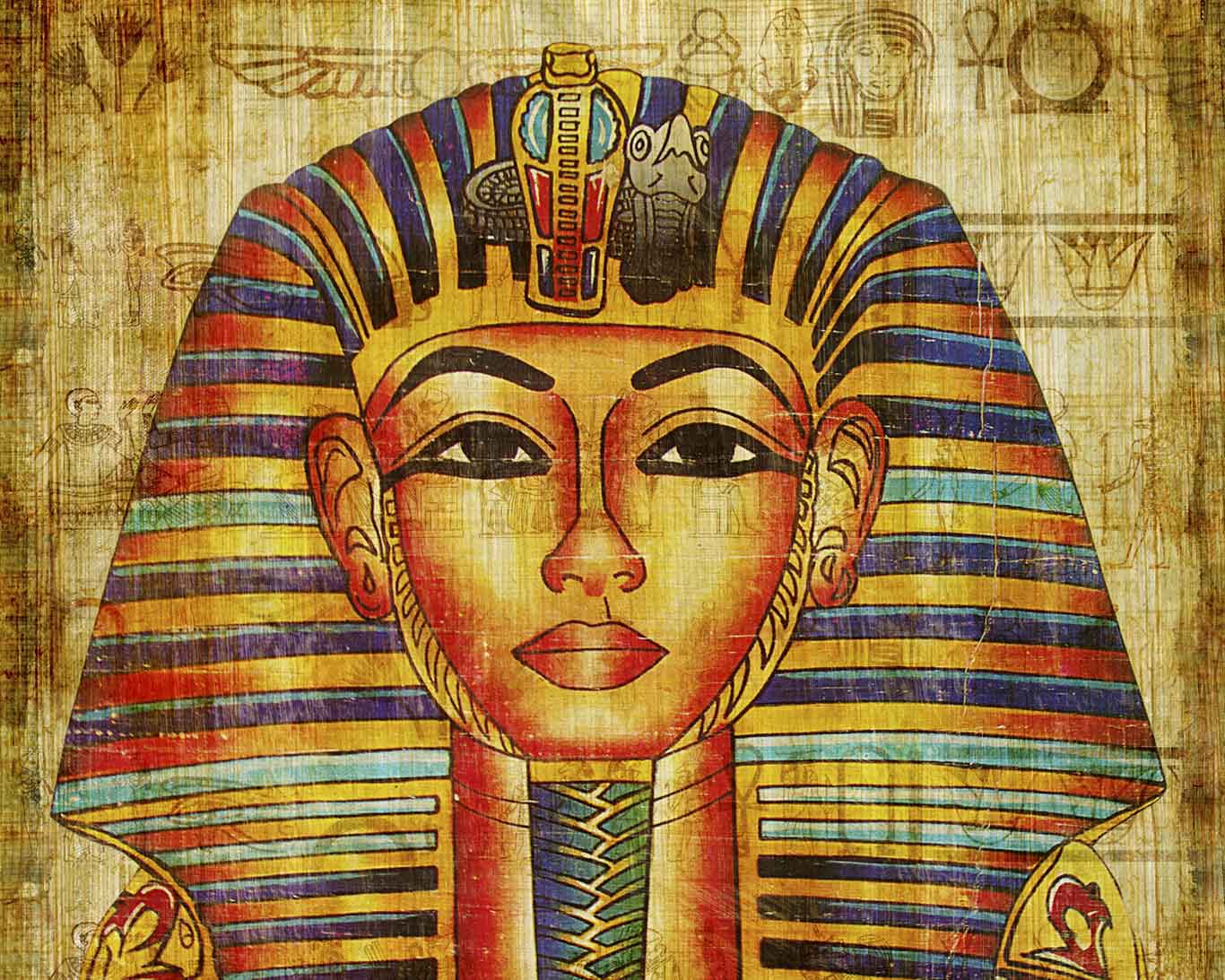
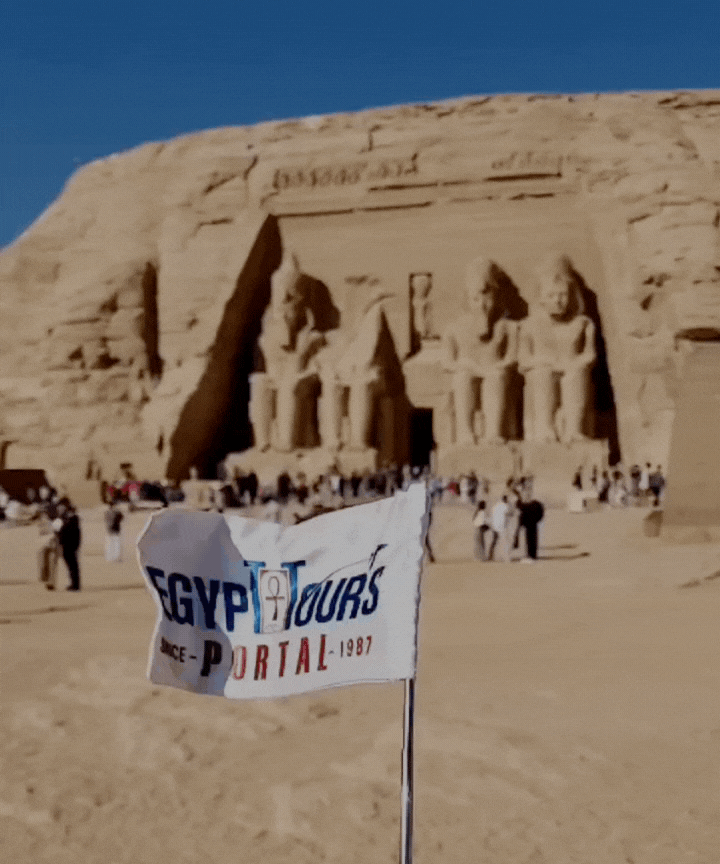
The legend of Queen Cleopatra is as immortal as time; everyone is familiar with the story of her cursed love that shaped the future of the entire history of Egypt. The entire world knows her tale and how she had the power to manipulate the hearts and desires of great rulers such as Caesar. The Life of Queen Cleopatra is the story of a true survivor who chooses to take control of her life and death.
She is viewed as a symbol of feminism, power, and courage who carved her name in letters of gold in the history books. Her name and identity are subject to a great debate throughout history, even in the modern era, which has created massive controversy that has divided views and opinions. This article will seek to explore in full detail everything that surrounds the last ruler of Egypt’s Ptolemaic dynasty.
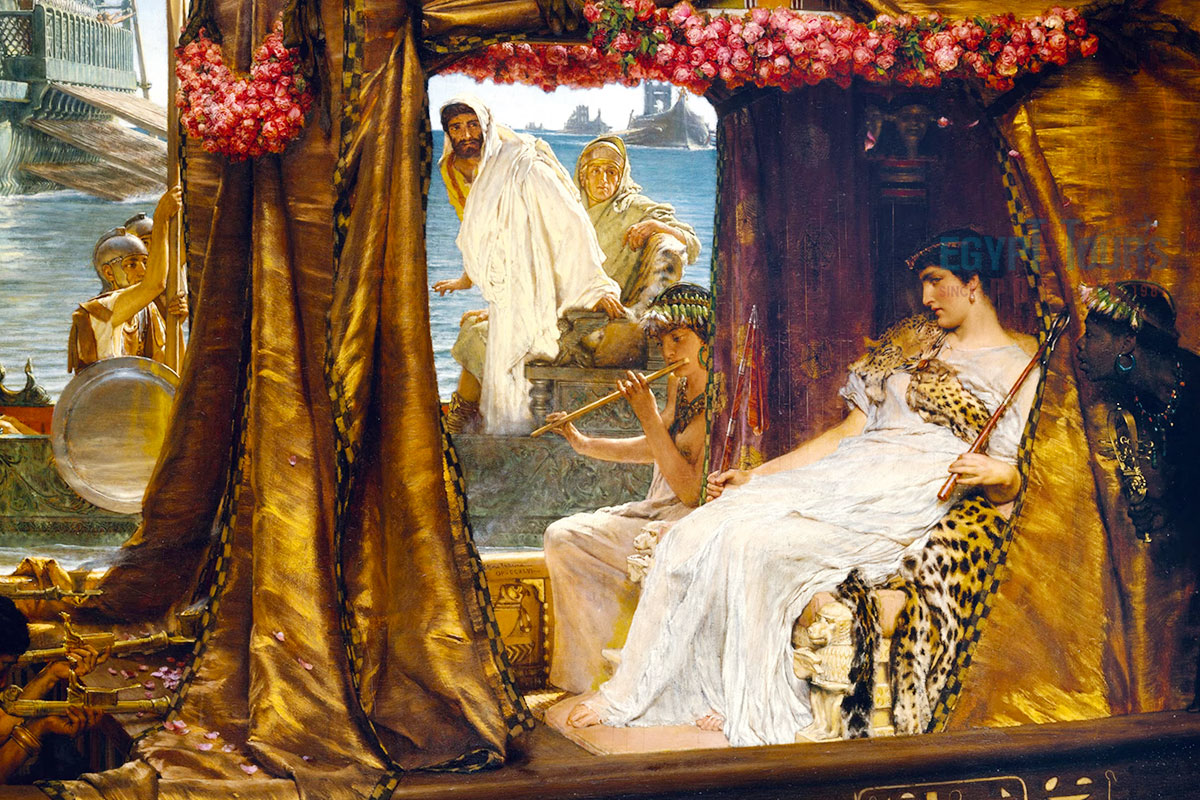
The Greco-Roman period began with the conquest of Egypt by Alexander the Great in 332 B.C He didn’t stay alone in Egypt but he built a new capital in Egypt where the Nile river meets the Mediterranean Sea and called it Alexandria, which is the 2nd largest city in Egypt and a must-see location to visit during your trip to Egypt.
When Alexander the Great died, the empire split into many parts between his generals, with the most powerful generals each ruling a section. Egypt eventually fell under the reign of the Macedonian Greek general Ptolemy I Soter. The Ptolemaic dynasty ruled Egypt from 305 B.C., which ended with the suicide of Cleopatra. At that time, Egypt was annexed by Rome in 30 B.C. and became part of the Roman Empire.
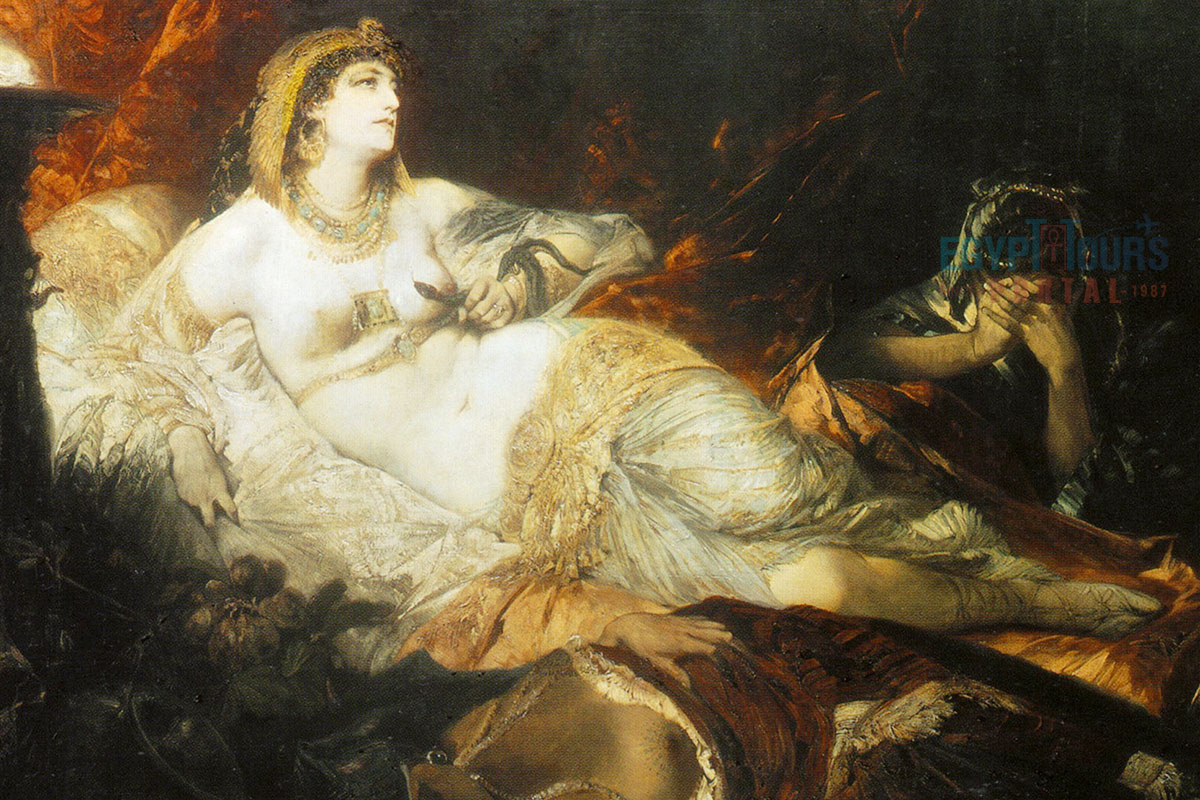
Queen Cleopatra VII is one of the most famous, beautiful, intelligent, and strong female rulers in history. She was the last ruler of the Macedonian dynasty. Queen Cleopatra was born around 69 B.C., and she was the daughter of King Ptolemy XII. In 51 B.C., Ptolemy XII died, leaving the throne to 18-year-old Cleopatra and her brother, the 10-year-old Ptolemy XIII. It is likely that the two siblings married, as was customary at the time, to maintain the bloodline.
Explore the marvelous history of the kings and queens of the ancient Egyptian civilization
Read More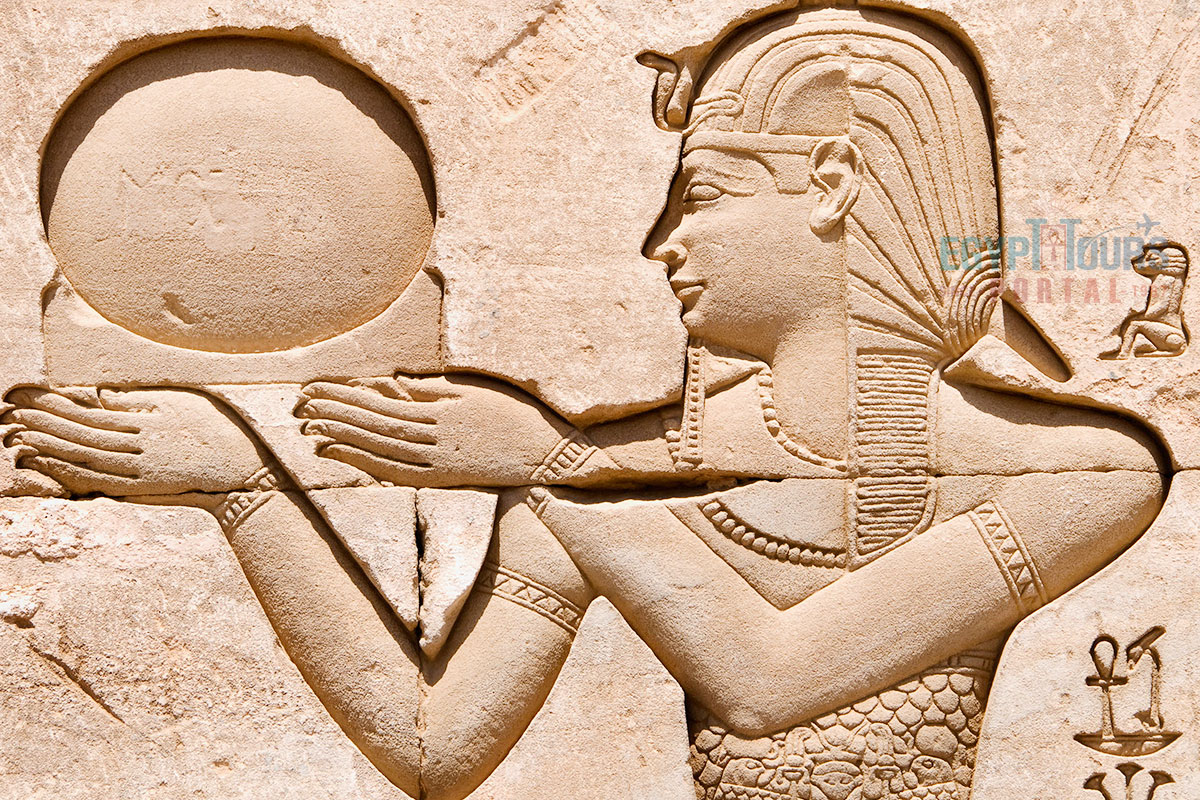
Soon after they assumed power, complications arose between Cleopatra and Ptolemy XIII. Eventually, in 49 BC, Cleopatra fled to Syria, where she assembled an army to defeat her rival brother and declare herself. In 48 B.C., she returned to Egypt with her military might and faced her brother at Pelusium, located on the empire’s eastern edge.
Around this same time, the civil war between Julius Caesar and Pompey was consuming Rome. Pompey eventually sought refuge in Egypt, but on orders from Ptolemy, Pompey was killed so Ptolemy could win Caesar's favor and take him to an alley, where he could defeat his sister Cleopatra. But she was able to infiltrate his royal palace, win his favor, and make him fall in love with her. Cleopatra now had access to enough military muscle to dethrone her brother and solidify her grip on Egypt as a sole ruler.
Caesar was able to defeat Ptolemy's army and even followed him to Alexandria, where he killed him. Caesar restored Cleopatra to the throne because he loved her, and he desired to take control of Egypt's wealth and treasures so he could fund his climb to power back in Rome.
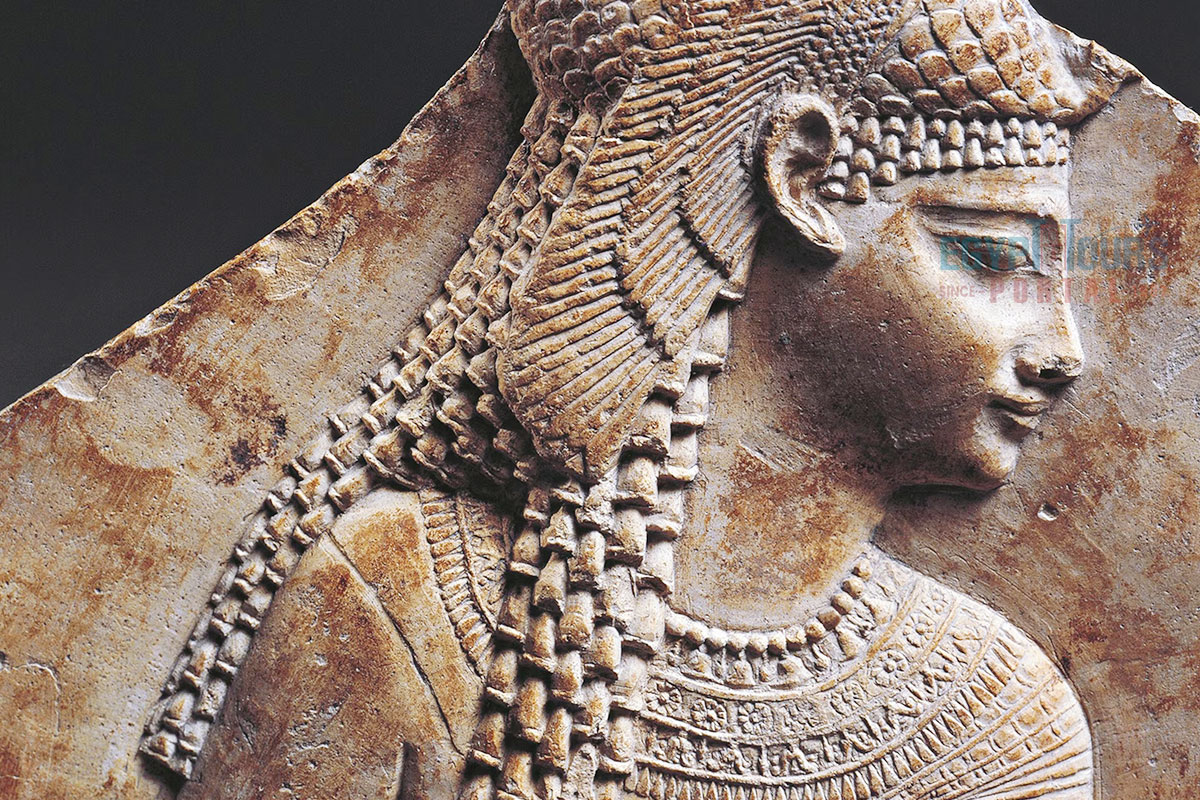
Following Caesar’s defeat of Ptolemy’s forces at the Battle of the Nile, Caesar restored Cleopatra to the throne. Soon after, Ptolemy XIII fled and drowned in the nile. In 47 B.C. Cleopatra bore Caesar a son, whom she called Ptolemy Caesar, known as Caesarion. Cleopatra eventually followed Caesar back to Rome but returned to Egypt in 44 B.C. following his assassination.
She ruled Egypt as the queen and her son as the co-regent. Cleopatra became connected with the Goddess of motherhood, Isis, the wife of the ruler of the underworld, Osiris, and the mother of the sky god, Horus, to declare herself as holy royalty, and she was often called the New Isis in 41 B.C. Marc Antony, part of the Second Triumvirate that ruled Rome following the murder of Caesar, sent for Cleopatra so that she could answer questions about her allegiance to the empire’s fallen leader.
Cleopatra agreed to his request and made a lavish entrance into the city of Tarsus. Captivated by her beauty and personality, Antony plunged into a love affair with Cleopatra that would eventually produce three children, including twins named Alexander Helios and Cleopatra Selene, in the year 34 B.C. Marc Antony, Caesar's general, sent a message to Cleopatra asking her to show her allegiance and return with Cleopatra to Alexandria with a triumphant flair.
Cleopatra accepted his request and went to Rome to see him. She made an extravagant, lavish entrance into the city of Tarsus to grab his attention, and in turn, Anthony was enchanted by her beauty and her captivating personality. Antony began a love affair with Cleopatra, which led to the birth of three children, including twins named Alexander Helios and Cleopatra Selene. Crowds swarmed to the Gymnasium to catch a glimpse of the couple seated on golden thrones that were elevated on silver platforms. Beside them sat their children.
Antony antagonized his rival in 34 BC by declaring Caesarion as Caesar’s real son and legal heir rather than Caesar's adoptive son Octavian, whom the revered Roman leader had adopted. Octavian, however, fought back, declaring he’d seized Antony’s will, and told the Roman people that Antony had turned over Roman possessions to Cleopatra and that there were plans to make Alexandria the Roman capital.
As a result of Octavian's actions, in 32 BC, the Roman Senate stripped Antony of all his titles and declared war on Cleopatra and all her allies. In the year 31 B.C., Cleopatra and Antony combined armies to try to defeat Octavian in a raging sea battle at Actium on Greece’s west coast. The clash, however, proved to be a costly defeat for the ancient Egyptians, forcing Antony and Cleopatra to flee back to Egypt in Alexandria.

Antony soon returned to the battlefield, where he was falsely informed that Cleopatra had died. Upon hearing the news, the despondent Roman leader committed suicide by stabbing himself. Cleopatra follows her lover’s demise by ending her life as well, by being bitten by an Egyptian Cobra. She died on August 12, 30 B.C.
The two were buried together, as they had wished, and Egypt became a province of the Roman Empire. She died at the age of 39, and soon after, her son Caesarion was arrested and executed. So Egypt was annexed to Rome by Caesar Augustus in 30 B.C., and he called Egypt Aegyptus, and it became a province of the Roman Empire under his rule. They were responsible for the administration, protection, and finances of the entire province.
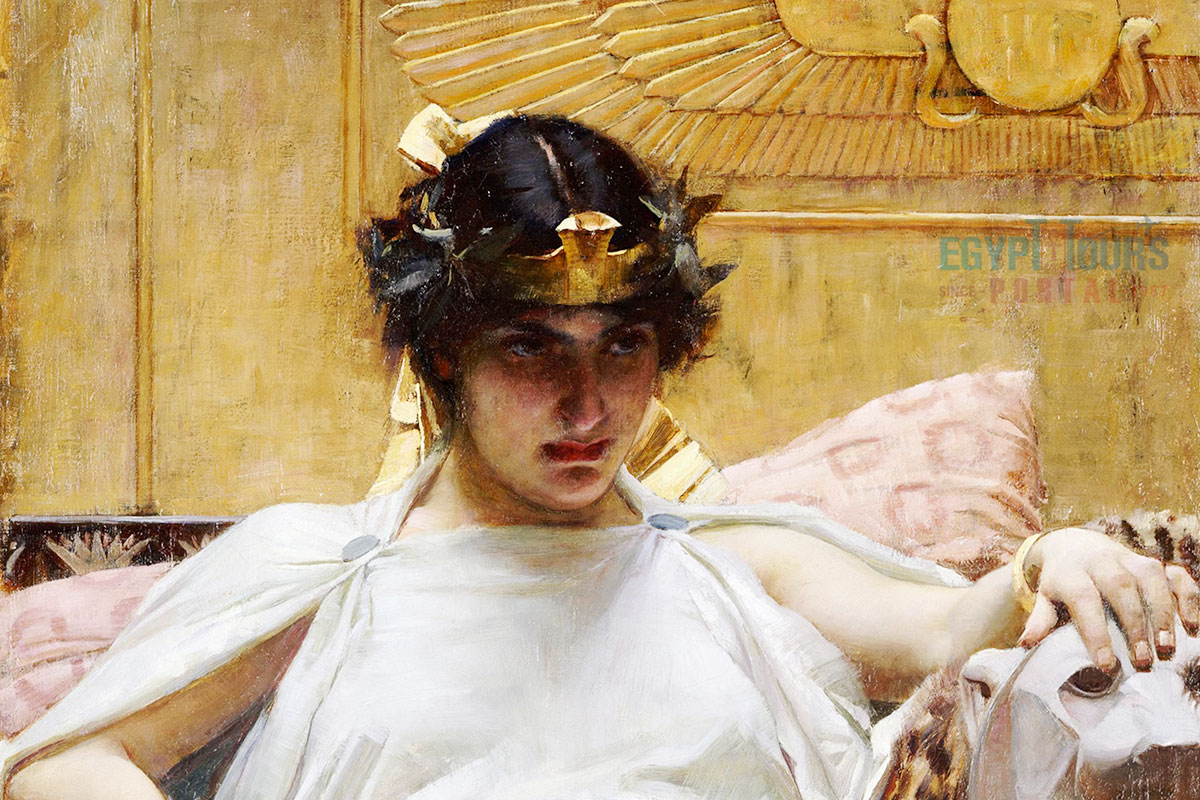
Queen Cleopatra VII, the last ruler of Egypt’s Ptolemaic dynasty, has been a subject of fascination and mystery, with her physical appearance often speculated upon by historians, scientists, and artists to this very day. While Cleopatra’s exact facial features and skin tone cannot be known with complete certainty, research into her ancestry and contemporary portrayals offers valuable insights into her appearance.
Cleopatra was primarily of Macedonian Greek descent, stemming from the Ptolemaic dynasty founded by Ptolemy I Soter, a general of Alexander the Great. Her lineage also likely included some Persian and possibly Syrian ancestry, introduced through intermarriages within the Hellenistic royal families.
This diverse background has led scholars to conclude that Cleopatra’s appearance would have resembled that of the people of the Eastern Mediterranean, a region known for its diversity of skin tones ranging from pale to olive.
Historical evidence suggests that Cleopatra had an olive or pale-olive complexion and dark hair, typical of Mediterranean heritage. Official portraits, such as those on her coinage, often depict her with prominent, almost masculine features, including a hooked nose and strong jawline, features likely intended to communicate strength and authority.
Although these portraits may have been idealized or stylized according to Greek artistic conventions, they are considered among the most reliable sources for her actual appearance. Moreover, Cleopatra’s facial features were depicted differently depending on the cultural context.
Egyptian reliefs and statues portray her with idealized features common in ancient Egyptian art, while Roman and Greek portraits present her with more pronounced features, adhering to the distinct styles of each civilization. Ancient coins issued during her reign with Mark Antony suggest she had strong, defined features and may have been less delicate than traditional depictions suggest.
Despite popular depictions in modern media, Cleopatra was neither purely "white" nor "black" by today’s racial definitions. Historical and genetic analyses suggest she likely had a complexion reflecting her mixed heritage, a blend that might be described as pale olive. While Cleopatra’s charisma and intellect often overshadowed discussions of her appearance, her blend of Greek and Eastern Mediterranean features has helped shape her legacy as one of the ancient world’s most captivating figures.
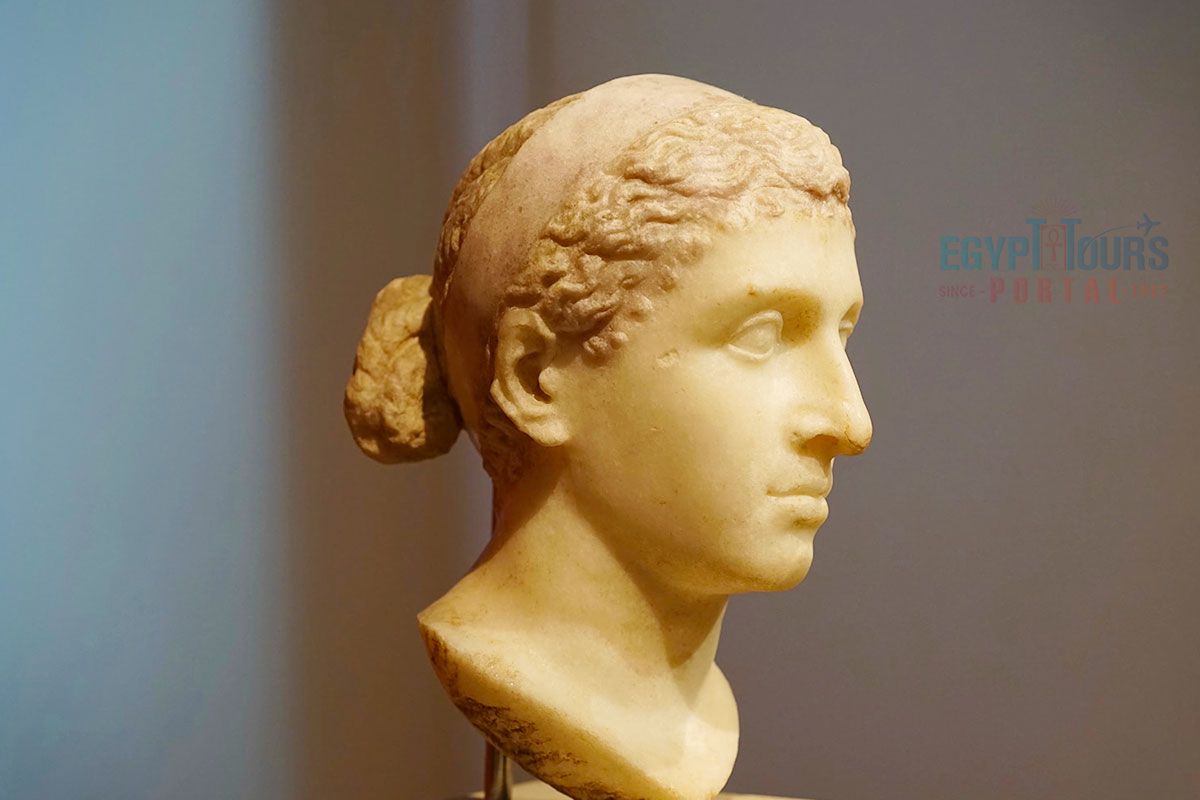
Cleopatra’s achievements as queen reflect her political ingenuity, economic strategy, and cultural patronage, all of which were crucial in an era of increasing Roman expansion. Early in her reign, Cleopatra formed a powerful alliance with Julius Caesar, helping her to secure her throne and fend off rivals within the Ptolemaic court.
After Caesar’s assassination, she aligned with Mark Antony, a strategic partnership that strengthened her position and expanded her influence. Together, Cleopatra and Antony regained territories once under Egyptian control, such as Cyprus, Cilicia, and portions of Syria, restoring Egypt’s reach across the Eastern Mediterranean.
In Egypt, Cleopatra demonstrated keen economic acumen, enacting policies that stabilized Egypt’s economy amid Roman demands and a series of difficult harvests. She initiated public works, including temples to both Egyptian gods and Greek gods, which helped strengthen her legitimacy among her subjects. Alexandria, her capital, remained a hub of scholarship and innovation under her patronage.
Cleopatra herself supported the famous Library and Museum of Alexandria, enriching Egypt’s cultural legacy. Cleopatra’s ambitious vision extended to her children as well; she granted them titles and territories, intending to establish a new era of Ptolemaic rulers. Although her plans ultimately ended with her death, Cleopatra’s reign left a profound impact on Egypt’s political and cultural landscape.
Discover the close connection between Ancient Egypt and Ancient Greece
Read More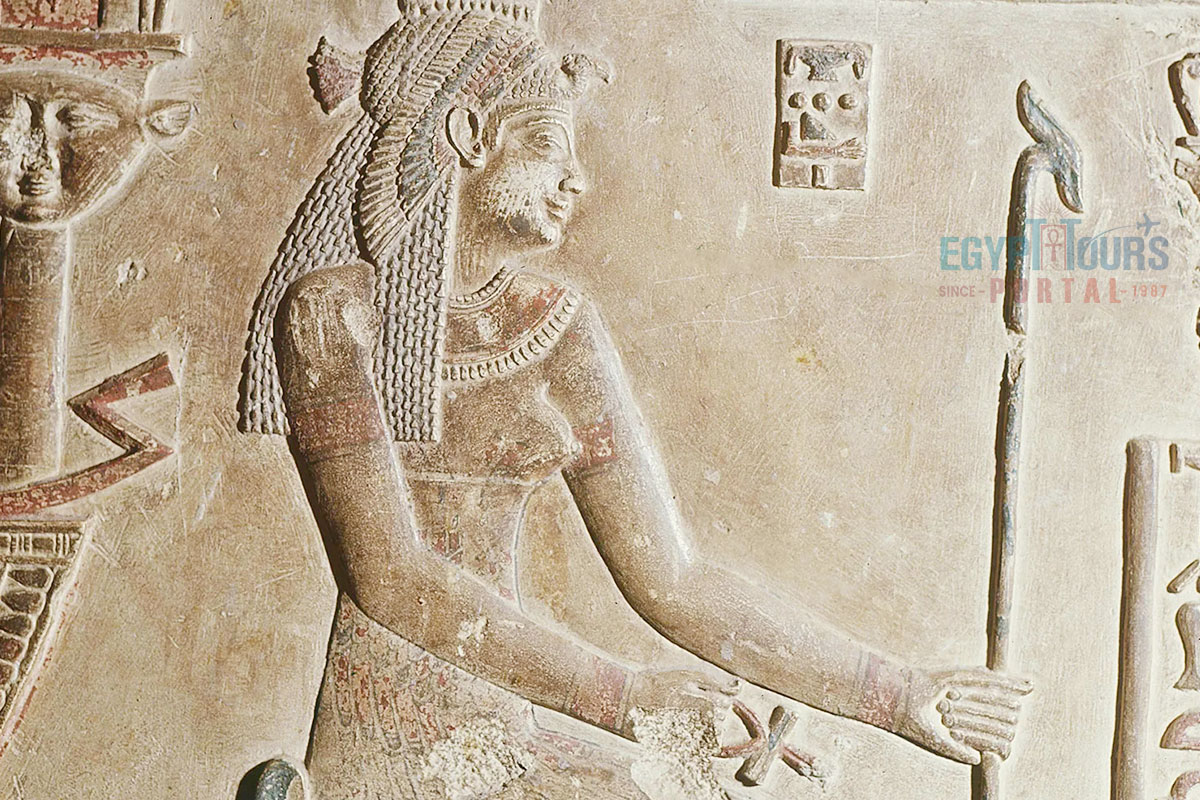
Cleopatra VII’s family, the Ptolemies, was known for its complex, often tumultuous relations shaped by the Ptolemaic custom of sibling marriage. Her father, Ptolemy XII Auletes, ruled Egypt with Roman support but faced exile due to local opposition, only to regain the throne with Roman military assistance. Cleopatra had several siblings, including her sister Arsinoe IV and brothers Ptolemy XIII and Ptolemy XIV, both of whom she married at different points, as was customary for the dynasty.
However, Cleopatra’s reign alongside her brothers was fraught with conflict, particularly with Ptolemy XIII, who challenged her authority, leading to a civil war that eventually involved Julius Caesar and solidified her position. Cleopatra had four known children: Caesarion (Ptolemy XV), her son with Julius Caesar, and three children with Mark Antony—Alexander Helios, Cleopatra Selene II, and Ptolemy Philadelphus.
Cleopatra aimed to establish her children as rulers over a revitalized Ptolemaic kingdom. While her efforts were cut short after her death, Cleopatra Selene II continued her mother’s legacy by marrying Juba II and ruling Mauretania, bringing Ptolemaic influence to North Africa. Cleopatra’s family ties and marriages reflect her intense dedication to preserving her dynasty and Egypt’s independence, even as Rome loomed over her kingdom.
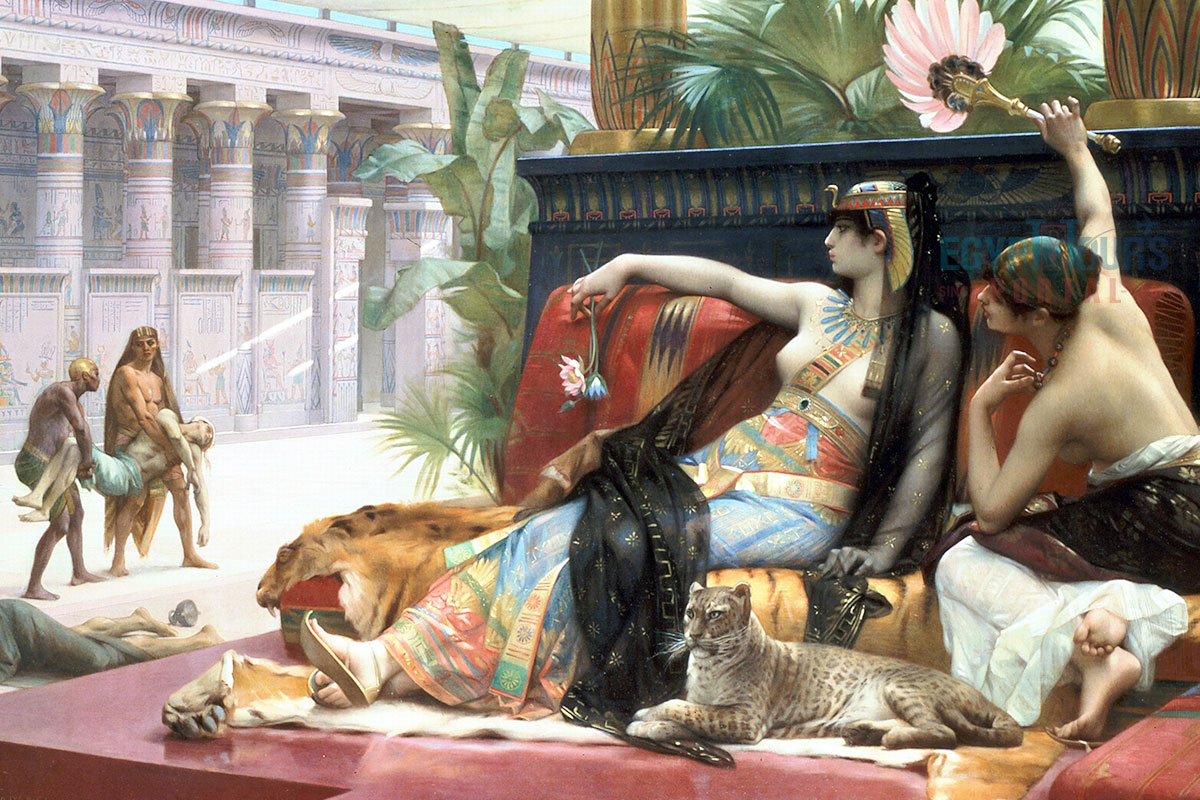
The mystery of Cleopatra’s final resting place remains one of history’s great enigmas. After her defeat by Octavian (the future Augustus) in 30 BC, Cleopatra, rather than face the humiliation of a Roman triumph, reportedly ended her life, possibly through poison or by the bite of an asp.
Ancient sources indicate that she was buried with her lover, Mark Antony, in a grand mausoleum in Alexandria. However, the exact location of her tomb is unknown, and despite extensive archaeological searches, her mummy has never been found.
Natural disasters over the centuries, including earthquakes and tsunamis, have significantly altered Alexandria’s landscape, submerging large portions of the ancient city. Some archaeologists believe Cleopatra and Antony’s tomb might be submerged beneath the modern city or off its coast.
In recent years, excavations at the temple complex of Taposiris Magna, west of Alexandria, have raised hopes that Cleopatra’s remains might be there, but no conclusive evidence has emerged. The enduring mystery of Cleopatra’s burial has only added to her legendary status, leaving open questions about where one of history’s most intriguing figures truly rests.
The magnificent and extraordinary life of Cleopatra is a legendary tale of love, war, and demise. She is like Helen of Troy, who changed the fabric of the world and created some of the most marvelous monuments that capture her essence and legacy. Our incredible Egypt tours and Nile cruises will be the ideal gateway to witness some of the most magical and beautiful monuments ever created in the history of the world.
Private 4 Days Cairo Tour Packages for New Zealander Travelers 4 days Cairo Egypt To...
Tour Location: Cairo – Giza...
5 Days Cairo and Alexandria Tour Package For New Zealander Travelers 5 days Cairo an...
Tour Location: Cairo/Giza/Alexandria...
6 Days Cairo, Luxor & Aswan Tour Package For New Zealander Travelers 6 days Cair...
Tour Location: Cairo/Giza/Aswan/Luxor...
Amazing 7 Days Cairo and Hurghada Holiday for New Zealander Travelers 7 Days Cairo &...
Tour Location: Cairo – Giza – Hurgh...
Cleopatra’s fame extends from her political acumen and strategic alliances to her dramatic life and tragic end. Known for her intelligence and charm, Cleopatra ruled as both a cunning stateswoman and a captivating personality, often depicted as one of history’s most beautiful and fascinating figures.
Her relationships with Julius Caesar and Mark Antony solidified her place in Roman and world history, while her tragic demise after the defeat by Octavian has inspired countless stories, plays, and films.
Cleopatra’s ability to hold her own in a male-dominated world, combined with her charisma, strategic genius, and the allure of her Egyptian heritage, has made her a figure of endless fascination and cultural significance. She remains an icon of powerful femininity, intrigue, and the exoticism of ancient Egypt.
Following Cleopatra’s death in 30 BC, Egypt was annexed by Rome and transformed into a Roman province, ending centuries of Egyptian independence and marking the close of the Hellenistic era. Octavian (Augustus), who would become Rome’s first emperor, took control of Egypt’s vast resources, including its crucial grain supply, which became essential to sustaining the Roman population.
Egypt was governed by a Roman prefect appointed directly by Augustus, with Alexandria maintained as a significant intellectual and commercial center. Although Roman rule brought new structures and customs, Egypt’s native traditions, religion, and culture continued to flourish under Roman influence, blending with Greco-Roman practices in a unique cultural synthesis that would persist for centuries.
After Cleopatra’s death, her son Caesarion (Ptolemy XV) was briefly declared pharaoh, but he was soon captured and executed by Octavian’s forces to eliminate any potential claim to Caesar’s legacy. Egypt then became a Roman province under the direct control of the emperor, ruled by Roman officials rather than local monarchs.
Octavian, later Augustus, ensured that Egypt was tightly integrated into the Roman Empire, with governance in the hands of a Roman prefect who reported directly to him, making Egypt a prized asset of the imperial system. This change marked the beginning of a new era, with Egypt firmly within the Roman sphere of influence, bringing an end to the line of Ptolemaic rulers.
Cleopatra practiced the polytheistic religion of ancient Egypt, presenting herself as a divine ruler with a close connection to the gods. She identified particularly with the goddess Isis, often depicting herself as Isis incarnate, which enhanced her legitimacy among her Egyptian subjects.
This association was not only a political strategy but also a way for Cleopatra to connect with her people, as Isis was revered as a goddess of motherhood, magic, and protection. Cleopatra also respected the Greek pantheon, reflecting her Macedonian Greek heritage, and incorporated Greek deities into Alexandria’s religious life.
Her religious practice symbolized the cultural fusion of her reign, blending traditional Egyptian beliefs with Hellenistic elements to reinforce her role as both an Egyptian and a Greek queen.
The entire country of Egypt deserve to be explored with its every heavenly detail but there are places that must be seen before any other such as the breathtaking Hurghada's red sea, The wonders of Cairo the pyramids of Giza, the great sphinx, the Egyptian Museum, Khan El Khalili Bazaar, the wonders of Luxor like Valley of the Kings, Karnak & Hatshepsut temple and the wonders of Aswan such as Abu Simbel temples, Philea temple, Unfinished obelisk and The Wonders of Alexandria like Qaitbat Citadel, Pompey's Pillar and Alexandria Library. Read more about the best places to visit in Egypt.
If you want to apply for a Visa On Arrival that lasts for 30 days then you should be one of the eligible countries, have a valid passport with at least 6 months remaining and pay 25$ USD in cash, as for the E-Visa for 30 day you should have a valid passport for at least 8 months, complete the online application, pay the e-visa fee then print the e-visa to later be presented to the airport border guard. You could also be one of the lucky ones who can obtain a free visa for 90 days. Read more about Egypt travel visa.
Egypt has a variety of delicious cuisines but we recommend “Ful & Ta’meya (Fava Beans and Falafel)”, Mulukhiya, “Koshary”, a traditional Egyptian pasta dish, and Kebab & Kofta, the Egyptian traditional meat dish.
The best time to travel to Egypt is during the winter from September to April as the climate becomes a little tropical accompanied by a magical atmosphere of warm weather with a winter breeze. You will be notified in the week of your trip if the Climate is unsafe and if any changes have been made.
You should pack everything you could ever need in a small bag so you could move easily between your destinations.
We have been creating the finest vacations for more than 20 years around the most majestic destinations in Egypt. Our staff consists of the best operators, guides and drivers who dedicate all of their time & effort to make you have the perfect vacation. All of our tours are customized by Travel, Financial & Time consultants to fit your every possible need during your vacation. It doesn't go without saying that your safety and comfort are our main priority and all of our resources will be directed to provide the finest atmosphere until you return home.
You will feel safe in Egypt as the current atmosphere of the country is quite peaceful after the government took powerful measures like restructuring the entire tourist police to include all the important and tourist attractions in Egypt. Read more about is it safe to travel to Egypt.
Wear whatever feels right and comfortable. It is advised to wear something light and comfortable footwear like a closed-toe shoe to sustain the terrain of Egypt. Put on sun block during your time in Egypt in the summer to protect yourself from the sun.
The best activity is by far boarding a Nile Cruise between Luxor and Aswan or Vise Versa. Witness the beauty of Egypt from a hot balloon or a plane and try all the delicious Egyptian cuisines and drinks plus shopping in old Cairo. Explore the allure and wonders of the red sea in the magical city resorts of Egypt like Hurghada and many more by diving and snorkeling in the marine life or Hurghada. Behold the mesmerizing western desert by a safari trip under the heavenly Egyptian skies.
There are a lot of public holidays in Egypt too many to count either religious or nation, the most important festivals are the holy month of Ramadan which ends with Eid Al Fitr, Christmas and new years eve. Read more about festivals & publich holidays in Egypt.
Egypt is considered to be one of the most liberal Islamic countries but it has become a little bit conservative in the last couple of decades so it is advised to avoid showing your chest, shoulders or legs below the knees.
Arabic is the official language and Most Egyptians, who live in the cities, speak or understand English or at least some English words or phrases. Fewer Egyptians can speak French, Italian, Spanish, and German. Professional tour guides, who work in the tourism sector, are equipped to handle visitors who cannot speak Arabic and they will speak enough English and other languages to fulfill the needs of all our clients.
The fastest way is a car, of course, a taxi. If you are in Cairo ride a white taxi to move faster or you could board the fastest way of transportation in Egypt metro if the roads are in rush hour.
The temperature in Egypt ranges from 37c to 14 c. Summer in Egypt is somehow hot but sometimes it becomes cold at night and winter is cool and mild. The average of low temperatures vary from 9.5 °C in the wintertime to 23 °C in the summertime and the average high temperatures vary from 17 °C in the wintertime to 32 °C in the summertime. The temperature is moderate all along the coasts.
It is the home of everything a traveler might be looking for from amazing historical sites dating to more than 4000 years to enchanting city resorts & beaches. You will live the vacation you deserve as Egypt has everything you could possibly imagine.









